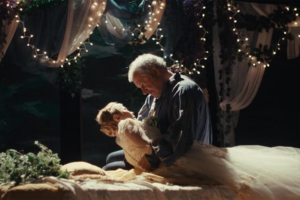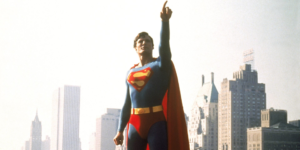by GREG KING

David Lang composed the evocative music score for Paolo Sorrentino’s beautiful film Youth. Greg spoke to David about the score, and what makes a great film score, as well as discussing some of the great film composers.
“I have to say it was a completely amazing and beautiful thing that happened to me, completely out of the blue,” admits classical composer David Lang. Lang was chosen by Italian director Paolo Sorrentino (The Great Beauty, etc) to create the musical score for his latest film Youth, a poetic meditation on life and ageing. The film stars Michael Caine as Fred Ballinger, a retired music composer who is approached to perform at a Royal Command Performance in front of Queen Elizabeth and Prince Philip.
Lang was studying chemistry at college and was on his way to becoming a doctor. But he had always had a passion for music ever since he was nine years old and watched a movie of the legendary Leonard Bernstein conducting a Young People’s Concert, and knew that he wanted to become a composer. “Even though I was doing music from a very early age I never really thought I was going to be doing it for real until I got a huge amount of courage when I was about 20 years old. Even though I was doing music all the time I never thought that could be my career. My career as a composer of film scores came about almost by accident.”
The collaboration happened almost by accident, admits Lang, on the phone from Los Angeles. Sorrentino has used one of Lang’s compositions in his Oscar winning film The Great Beauty. Then he approached Lang to score his new film. “He told me that he had this crazy idea to make a movie about a composer,” he elaborates. “The main point of this movie would be that there would be a song that ran through it from start to finish. They would talk about this song for the entire movie, and Paolo asked me if i would like to be the composer of the music for this film. I just couldn’t believe my good luck,” he recalls.
“So the beautiful idea of the film that Paolo had was to start with the idea that there would be a song which can carry a huge range of emotional information for this character. He then built the entire film around the possibility of this song. So that’s how important music is to him.”
The way Sorrentino constructed the movie though was somewhat unusual. “Usually what happens with a movie is that everyone is finished – the script, the shooting, and then they edit everything,” elaborates Lang. “And the very last thing that happens is that they send the finished film without music to a composer. Then you very quickly have to add the music at the last possible moment. It’s very stressful!
“But because the music was so important in this film Paolo had the idea to make the film work in the opposite direction. So before the script was finished I was brought on to talk about where music could go in the film, what the music could reveal about this character. I wrote all the music before the script could be done. Because there is so much of the music that happens on screen – Fred conducts the cows, Fred conducts the orchestra, he plays the candy wrappers, the little boy rehearses the violin music – there is so much of this that could only be done after the music was finished. So to me that was a very innovative and beautiful way to build this film. It really solidified the idea that music was the thing that made this film work.
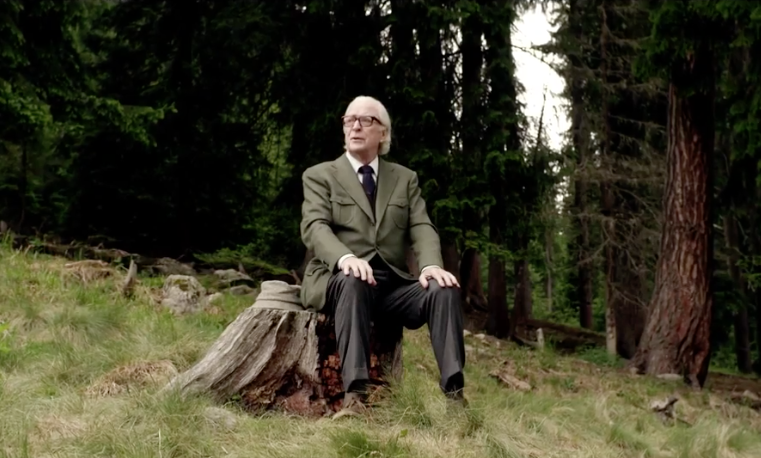
“I finished this music, I wrote it, we recorded it beautifully with these great, world class musicians so that they could finish the script. But what that meant was that I was long done by the time they started filming it,” he says with a hint of regret. “By the time they filmed, by the time they went to that beautiful location in Switzerland, they didn’t need me to go. I spent no time on the set and that was the downside of having to be the first person to finish. That was really sad.”
What was Lang’s reaction to hearing his score for the first time with those images on the big screen? “I was really surprised and very happily shocked,” he admits, “because the piece was very abstract to me up until that moment. The piece was really just words and sounds. I knew the sounds and I knew what they would mean, I knew what the music meant to me, but to see it up there on a giant screen a thousand feet high and with the sound turned up very loud in a room full of people who were having an emotional reaction to it, it was very very moving for me. I had learned it as a kind of interior thing for myself, and tried to make it about my emotional life. I thought it was all very personal. And then when I finally got to see it it was kind of shocking how gigantic and how powerful and how public it was.”
What makes a good film score? “That’s a very interesting question,” Lang answers, “because I’m not totally sure. I think a film needs something that can only come from music. I think a lot of times what happens in movies is you hear music where everything is exciting, there’s people running or whatever, and everything is super exciting, and then they have music that is also super exciting. So basically everything is telling you the same story and that works beautifully. That’s a completely legitimate and fantastic way to make music. But for me the really interesting thing that happens is when the music tells you something that’s not what you see. It tells you how to understand what’s unspoken or what’s unshown. The music tells you something about what it means emotionally to be doing those actions. And to me that’s a good film score.”
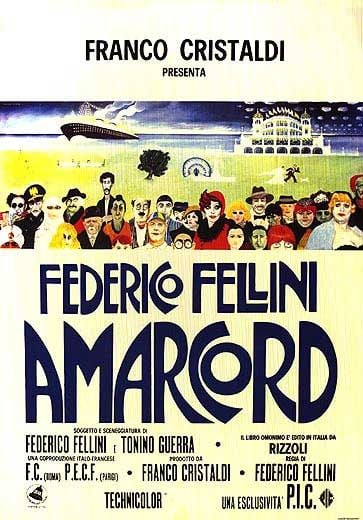
Lang admits that one of his all time favourite film scores is Amarcord, the 1974 satire from Fellini, featuring the beautiful score from Nino Rota, who also wrote the incredible music for The Godfather. Rota is an unbelieveable composer, and the music is so bittersweet and kind of heart breaking.
When asked about some other great film composers Lang talks about Ennio Morricone. “He’s amazing, and he’s also a very interesting person because he has a very firm place in both of the worlds that we are talking about. He is a completely inspirational composer of film music, but he is also a composer of very searching, experimental and creative classical music, new classical music, very powerful.”
Lang also admires Danny Elfman. He went to the same high school, not at the same time, but he also used to see his band Oingo Boingo in Los Angeles before Elfman made the transition to film scores, most notably for Tim Burton. “He’s another example of someone who was invited into that world and then figured out how to make it part of himself,” Lang adds.
And of course there’s John Williams. Lang admits to a certain excitement about the release of the new Star Wars movie The Force Awakens. “What makes that movie so great is John Williams. The core of that experience, the reason why it’s a multibillion dollar empire, the reason why it has captured the imagination of billions of people for the last forty years or however, is because of John Williams. That music makes that movie and makes that franchise revolutionary.
“And Jaws is a very exciting score,” he continues, “that score is also operatic, because of its use of motifs. It has little things that tell you this is when to be scared and every time you hear this you are going to be scared. It really does treat the movie as if it is a giant epic which I think is a very powerful way to do it.”
“What I really love is the idea that the images need the music, the director needs the music and that the composer is almost in some way an equal partner to the experience,” he elaborates. “And because I work in music that’s the kind of experience I am looking for. I am looking for the kind of experience that connects me to the world emotionally and connects me through music to everyone else. So those are the kinds of scores I really like.”
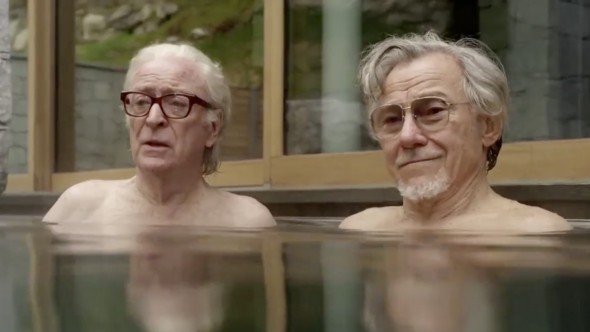
“People like the film because it’s an odd combination of things.” Lang concludes. “You think it’s going to be for old people but actually it has a huge number of jokes in it and it seems to have a large range of things to offer people of all sorts of ages and different backgrounds. It’s very funny and it’s very deep. I’m very happy with the film. I’m also proud of the song. The whole movie builds up to this song at the end and if this song were terrible or if the song didn’t work I would be horribly embarrassed, I would feel really terrible. You get to that moment at the end of the movie and the music swells up and the song comes on and it seems to be able to tell you everything about this man’s life that he is not able to tell you in words.”
https://www.mediafire.com/listen/fyfctamg55cdkfr/201127_001.MP3


